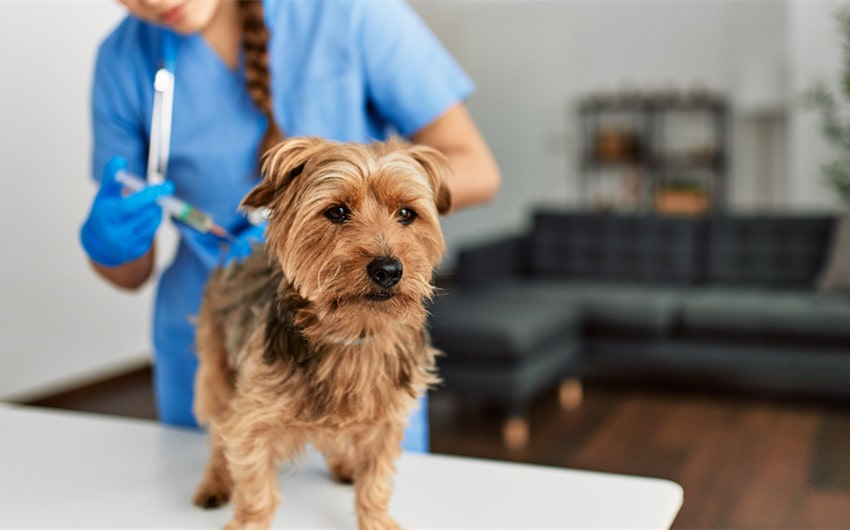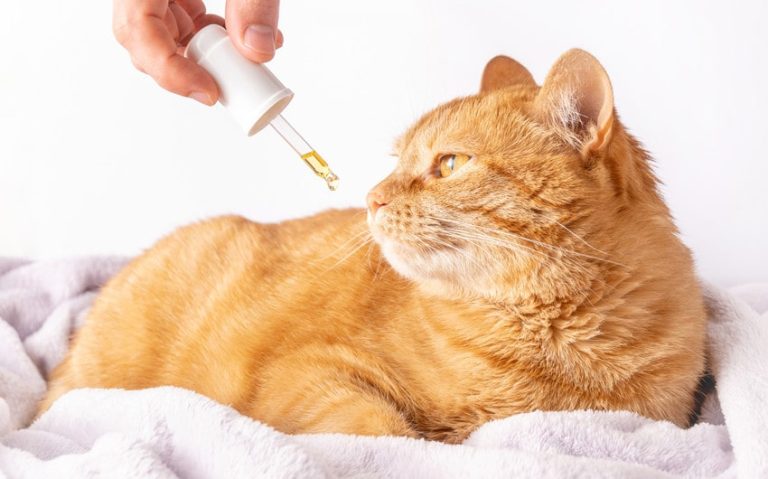Understanding Pet Vaccinations: Which Ones Are Essential & Why?
Vaccinating your pet is one of the most important steps you can take to maintain their long-term health and well-being. Just like humans, vaccines help protect pets from dangerous and often highly contagious diseases. But with so many vaccines available, it can be difficult to know which are the right ones for your furry friends.
Let’s break down everything you need to know about pet vaccinations, from what they are, to which ones your pet needs, and how often they need them. We’ll also look at why staying on top of their vaccine schedule is a vital part of being a responsible pet owner.
Why Vaccinations Matter for Our Pets
A simple yet powerful way to protect your pet from serious and sometimes fatal diseases, vaccinations are quite simply essential for your cat or dog. They prepare your pet’s immune system to recognise and fight off specific viruses or bacteria before they can cause them any harm, just like they would in humans.
Some vaccines help prevent illnesses such as parvovirus, feline leukaemia and rabies (while rare) which can be difficult, expensive and sometimes impossible to treat once symptoms start to appear.
Making sure your pet has up-to-date vaccinations will not only protect them but also other animals they come into contact with. They help prevent the spread of contagious diseases to other animals in your home, along with pets in your neighbourhood.
Essential Vaccines for Cats & Dogs
While there’s no legal requirement that your pet is vaccinated, the British Small Animals Veterinary Association (BSAVA) strongly recommends that pets are vaccinated to boost their immunity against life-threatening infectious diseases.
Some of the recommended vaccinations for dogs protect against:
- Canine distemper virus (CDV)
- Canine adenovirus/infectious canine hepatitis (CAV)
- Canine parvovirus (CPV)
- Leptospirosis
Some of the recommended vaccinations for cats protect against:
- Cat flu
- Feline parvovirus
- Feline Leukaemia Virus (FeLV)
Should I Get Optional Vaccines for My Pet?
Not all pets need the same vaccines. While some vaccines are essential for all dogs and cats, optional vaccines are recommended based on your pet’s individual lifestyle, environment, and any additional risk factors. It’s always best to talk with your vet to consider which vaccinations your pet may need if you are unsure. If you are in Arizona, you can visit the Maricopa vet hospital and receive advice from your chosen veterinarian on vaccinations, ensuring your pets are up to date on all their vaccinations.
You might want to organise additional vaccinations if your pet visits places such as grooming salons or if they stay at kennels or catteries, as they are likely to come into contact with many other animals that could be carrying contagious diseases or viruses. If your pet spends a lot of time outdoors, it’s also important to protect them against diseases that are carried by pests. For example, tick bites can cause Lyme disease, which can lead to joint pain, fever, and other serious complications.
If your pet is going to travel out of the country, they may also need additional vaccinations to protect against diseases such as rabies, based on the destination country’s regulations and laws. These regulations not only help protect your pet and other animals but can also protect humans who could be susceptible to the disease or virus.
What Happens If I Don’t Vaccinate My Pet?
If you don’t get your pet vaccinated, you leave them vulnerable to serious, often life-threatening diseases. You’re also putting other animals at risk, along with humans in cases where diseases can be transmitted to them. Unvaccinated pets may also face restrictions on travel, boarding, and access to groomers.
While vaccines are an essential part of preventive care, even the most well-cared-for pets can face unexpected health issues. Having pet insurance in place will help cover the costs of any emergency treatment and care, which can ease the financial burden during what is already a stressful time. Insurance can also cover care and treatment should your pet get infected by a disease that they’re not vaccinated against. Some providers, such as Petgevity, even offer coverage for pre-existing conditions, especially if the condition has been treated and has remained symptom-free for a certain period.
When & How Often Should My Pet Be Vaccinated?
It’s best to keep to a regular schedule to help ensure your pet has continuous protection from any dangerous diseases. Puppies and kittens need to be vaccinated early, with regular boosters in the following weeks and months.
Your puppy should typically start their vaccinations when they’re around 6 to 8 weeks old, while kittens need their first vaccinations when they’re around 9 weeks old. Your vet will be able to tell you when your puppy or kitten needs their top-up vaccines, which is why visiting your vet for regular check-ups is important.
Adult cats and dogs typically need annual booster vaccinations to maintain their immunity. It’s a good idea to set yourself a reminder so you know when to book an appointment with the vet each year.
Your vet may recommend optional vaccinations based on your pet’s exposure risk to certain diseases. This may be if you plan to travel and take your pet abroad or if their environment changes, such as interacting with other animals more frequently.
Understanding Side Effects & Reactions of Vaccines
While there are many benefits to pet vaccinations, like any medical treatment, there can be some side effects. Most pets show no side effects at all, but if they do, symptoms usually appear within a few hours and go away on their own within 1 to 2 days. Your pet may seem unusually sleepy, or a small bump may form at the injection site. They may also temporarily be off their food or have a slight fever.
You should contact your vet immediately if your cat or dog develops swelling around their face or paws or starts having difficulty breathing. Persistent vomiting or diarrhoea can also be a side effect caused by your pet’s vaccination. Your vet may need to adjust future vaccination plans based on your pet’s sensitivity.
Protecting Your Pet with the Right Vaccines
Staying on top of your pet’s vaccination schedule is one of the simplest and most effective ways to give them a long, healthy life. From essential to optional vaccines based on your pet’s lifestyle and environment, each plays a vital role in preventing serious illness from developing.
Talk with your vet to arrange a personalised vaccine plan for your pet. Prevention is far easier and more affordable than treatment, so make sure vaccinations are a regular part of your furry friend’s care routine.







